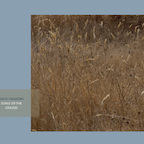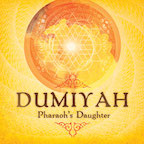New releases for the Days of Awe
I want to take time out for a few minutes to note the current season and mention a few recent releases that may help get you in the mood for t'shuvah.
 I'll first mention a new instrumental release by Tzadik saxophonist Paul Shapiro / Shofarot Verses. His 2003 "Midnight Minyan" put the daven into jazz. Here he continues that tradition, with some of my favorite Tzadik musicians, including Captain Beefheart alum Marc Ribot on guitar, Brad Jones on bass, and Tony Lewis on drums. From the opening moments of the very season-appropriate "Hashivenu" through the closing "With Reed and Skins" Shapiro manages to combine jazz and a sense of nusach (Ashkenazic Jewish cantorial modes) in ways that seek out that still small voice within us. At the same time, as on "Daven Dance," he reminds us that joy can physically move us. The shofar-like soprano sax impulsion on "Halil," with Ribot's answering guitar is one standout, followed by an actual shofar on "Ashamnu," which takes the familiar Yom Kippur melody to a new place of grace. The album's ethos is perhaps best expressed in the description of "Search your soul," "Finding solace in the house of b-flat." More info at Paul's website. The music is available from Tzadik and the usual disk and MP3 vendors online.
I'll first mention a new instrumental release by Tzadik saxophonist Paul Shapiro / Shofarot Verses. His 2003 "Midnight Minyan" put the daven into jazz. Here he continues that tradition, with some of my favorite Tzadik musicians, including Captain Beefheart alum Marc Ribot on guitar, Brad Jones on bass, and Tony Lewis on drums. From the opening moments of the very season-appropriate "Hashivenu" through the closing "With Reed and Skins" Shapiro manages to combine jazz and a sense of nusach (Ashkenazic Jewish cantorial modes) in ways that seek out that still small voice within us. At the same time, as on "Daven Dance," he reminds us that joy can physically move us. The shofar-like soprano sax impulsion on "Halil," with Ribot's answering guitar is one standout, followed by an actual shofar on "Ashamnu," which takes the familiar Yom Kippur melody to a new place of grace. The album's ethos is perhaps best expressed in the description of "Search your soul," "Finding solace in the house of b-flat." More info at Paul's website. The music is available from Tzadik and the usual disk and MP3 vendors online.
 Coming from another place, entirely, (and perhaps exemplifying the difference between the gritty downtown New York scene vs. the spiritual secularism of California's Bay Area) singer/cantor Linda Hirschhorn's voice and words speak directly to those parts of us that aspire to heal and to help a world in need of healing. Her 2013 recording, "Amazed" is also an album with beautiful personal love songs. With an all-star cast, including Holly Near on the backing vocals of the opening hymn, "Amazed," this is just a wonderful album, balm for a "verbissener velt." Tunes range from the folkie to the blues, as on "Some Love," to the hum along inspirational and aspirational, as "Give it all you have." You can listen to samples and purchase the CD from Linda Hirschhorn's website and the usual online vendors.
Coming from another place, entirely, (and perhaps exemplifying the difference between the gritty downtown New York scene vs. the spiritual secularism of California's Bay Area) singer/cantor Linda Hirschhorn's voice and words speak directly to those parts of us that aspire to heal and to help a world in need of healing. Her 2013 recording, "Amazed" is also an album with beautiful personal love songs. With an all-star cast, including Holly Near on the backing vocals of the opening hymn, "Amazed," this is just a wonderful album, balm for a "verbissener velt." Tunes range from the folkie to the blues, as on "Some Love," to the hum along inspirational and aspirational, as "Give it all you have." You can listen to samples and purchase the CD from Linda Hirschhorn's website and the usual online vendors.
 Siach Hasadeh is a Montreal-based duo, clarinet and bass, exploring Jewish niggun. Since they also appeared at Ashkenaz 2014, I can also link this set of reviews to my continuing coverage of the standout artists at that festival. Although the music is sweet, the duo explores the rougher sides of harmony as well. There is a delightful tone poem/art song/modern classical dissonance that weaves in and out of these tunes, from the opening "R' Levi Yitzchak Berditchever's Niggun" to "Niggun firn di tsaddikim in gay eyden" or "Rabbeinu's Niggun" featuring Shtreiml masters Jason Rosenblatt on harmonica and Ismail Fencioğlu on oud. For those who enjoy digging deeper and letter ways of niggun wash over them, this is a rich recording. You can read more about the recording on the band's website or purchase it directly from CDBaby.com.
Siach Hasadeh is a Montreal-based duo, clarinet and bass, exploring Jewish niggun. Since they also appeared at Ashkenaz 2014, I can also link this set of reviews to my continuing coverage of the standout artists at that festival. Although the music is sweet, the duo explores the rougher sides of harmony as well. There is a delightful tone poem/art song/modern classical dissonance that weaves in and out of these tunes, from the opening "R' Levi Yitzchak Berditchever's Niggun" to "Niggun firn di tsaddikim in gay eyden" or "Rabbeinu's Niggun" featuring Shtreiml masters Jason Rosenblatt on harmonica and Ismail Fencioğlu on oud. For those who enjoy digging deeper and letter ways of niggun wash over them, this is a rich recording. You can read more about the recording on the band's website or purchase it directly from CDBaby.com.
 The standout voice, the woman everyone wanted to hear at this year's Ashkenaz Festival was Polina Shepherd. Readers of these pages over the years will not be surprised—you have read reviews of her singing with choirs, with brass bands, with just her husband, Merlin Shepherd, and friends. She plays an amazing piano, but it is her voice that you notice. Amazing range. Beauty, and a force of nature. Born in the former Soviet Union, this recording is a tribute to both her Russian and Yiddish roots. She sings of love and longing, universal yearnings, whether, say, in the Russian "Silver Birch" or the more modern Yiddish of "Birch Tree;" from folk melodies, to Eastern European "scat," here a wordless prayer in "Ay Yay Yay;" whether the text comes from the Song of Songs, "Place me like a seal," her own poetry (most of these pieces), or evokes life, itself, in the Yom Kippur plea, "Avinu Malkeinu" (Our Father, Our King). Shepherd's voice is transformative. More information, and CD purchases from the artist's website.
The standout voice, the woman everyone wanted to hear at this year's Ashkenaz Festival was Polina Shepherd. Readers of these pages over the years will not be surprised—you have read reviews of her singing with choirs, with brass bands, with just her husband, Merlin Shepherd, and friends. She plays an amazing piano, but it is her voice that you notice. Amazing range. Beauty, and a force of nature. Born in the former Soviet Union, this recording is a tribute to both her Russian and Yiddish roots. She sings of love and longing, universal yearnings, whether, say, in the Russian "Silver Birch" or the more modern Yiddish of "Birch Tree;" from folk melodies, to Eastern European "scat," here a wordless prayer in "Ay Yay Yay;" whether the text comes from the Song of Songs, "Place me like a seal," her own poetry (most of these pieces), or evokes life, itself, in the Yom Kippur plea, "Avinu Malkeinu" (Our Father, Our King). Shepherd's voice is transformative. More information, and CD purchases from the artist's website.

There has been an evolution as Basya Schechter has gone from writing Middle Eastern-inflected folksongs, to someone more involved with rethinking religious poetry. He most recent CD was a recording of her settings of love poems, both to women, and to God (and sometimes, like "Song of Songs," as easily to read as expressing love for both) written in Yiddish by Rabbi A. J. Heschel. This latest recording by Pharaoh's Daughter consists entirely of settings of traditional prayer and piyyut. The music, though, comes from around the world. The opening "Adon Olam" conveys echoes of electronica. The familiar "Maoz Tzur" is rethought with celesta-like keyboard pinpoints, as though to highlight falling snow; in the simplicity of the melody you can hear echoes of a family lighting Hanukkah candles. Likewise, "Ha-nerot Halaluh" contains elements of electronica and metallic percussion and a lively sing-along melody. The title song, for instance, "Dumiya," echoes all of the above, with hints of African rhythm and Middle Eastern flow. The closing "Shebishlifleynu" has a driving, somewhat psychedelic beat. The current season is evoked with light glissando's of sound setting "Zikaron," a poem conveying the awe of standing in front of G-d on Yom Kippur, with a quieter new melody for "P'tach lanu sha'ar" (open a gate for us). If the music of Shlomo Carlebach and Debbie Friedman simplified melodies and invited congregational participation in davenning in new ways, the music of Basya Schechter and Pharaoh's Daughter fuses Sephardic, Ashkenazic, and indeed, world music traditions for a new generation of prayers. It is good to hear such eloquent settings for songs of renewal in this season of awe. Liner notes and more info available on the Pharaoh's Daughter website. You can purchase a copy from Amazon.com
.